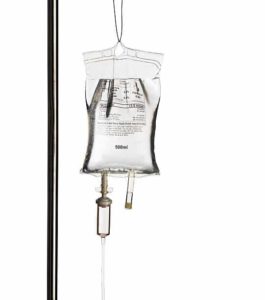

While ketamine does have an extensive history of research, a substantial part of it has been in the area of its usage for analgesia and anesthesia in surgery.
However, over the past few years, the use of ketamine has been robustly explored, especially its capability to break episodes of depression.
In understanding the activity of ketamine in the brain, its immense transpersonal and therapeutic potential is apparent. Ketamine Clinics of Los Angeles, led by Dr. Steven L. Mandel, provides ketamine infusion treatments to patients in Los Angeles, Beverly Hills, Orange County, California, and other cities and towns in this region of SoCal.
Blocking Glutamate at NMDA Receptors
Ketamine obstructs NMDA receptors in the brain from being activated by glutamate. This prevents the passage of the message between the cells. Though ketamine creates a spectrum of neurological activity, the NMDA receptor blocking is the primary function of this drug.
This attribute of ketamine is the reason behind its hypnotic, dissociative, and anesthetic effects. It works to make the patient feel disconnected from their body and surroundings for a temporary period.
Increasing Glutamate at AMPA Receptors
A promising aspect of ketamine is that while it obstructs glutamate from activating NMDA receptors, new research shows that it effectively increases the glutamate from activating NMDA receptors. However, this increase occurs at other receptor sites known as AMPA receptors.
When AMPA receptors are activated due to ketamine, it causes an increase in the glutamate in the anterior parts of the cingulate cortex. This area of the brain regulates emotions and helps a person assign emotions to internal and external stimulation, manages pain perception, and starts motor movement.
The blockage of glutamate at the NMDA receptors may enable a patient to detach from habitual emotional patterns, and an increase in glutamate at the AMPA receptors will enable them to associate positive feelings with their ketamine experience.
Regulating Opioid and Dopamine Activity
Ketamine controls the brain’s opioid and dopamine activity along with its impact on neurotransmitters. It is the combination of this activity that effectively alleviates pain and anxiety, and provides a sense of euphoria. These effects are not innately psychoactive, but they mediate and ease ketamine’s psychoactive properties. This makes ketamine a strong possibility in the treatment of depression, PTSD, anxiety, and various other mental conditions.
Ketamine’s Use in Breaking the Cycle of Mental Illness
Essentially, ketamine offers the patient a break from routine life by taking them out of their normal-functioning brain and enabling them to garner a different perspective.
For individuals struggling with mood disorders such as PTSD, anxiety, and bipolar disorder, and chronic depression, especially the type that arises from physical pain or illness, this can provide a much-needed interlude from daily living.
Dr. Steven L. Mandel treats patients from Los Angeles, Beverly Hills, Orange County, California, and other towns and cities in this area of The Golden State for ketamine infusion treatments.
For more information about Ketamine Infusion Therapy treatments for depression, bipolar, anxiety, post-traumatic stress disorder (PTSD), obsessive compulsive disorder (OCD), fibromyalgia, pain syndromes and other conditions contact us at Ketamine Clinics of Los Angeles in Southern California (Orange County) by clicking here or calling 310-270-0625.

